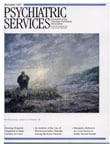The Potential Impact of the Baby-Boom Generation on Substance Abuse Among Elderly Persons
Abstract
Little attention has been paid to substance use disorders in the elderly population. Currently available diagnostic criteria are likely to significantly underestimate the prevalence of substance abuse among elderly persons because they were developed and validated in younger samples. As baby boomers age, the number of elderly persons who misuse or abuse illicit drugs and alcohol may increase because this age cohort has higher rates of use of these substances than previous cohorts. Abuse and misuse of prescription and over-the-counter drugs may also increase due to the larger numbers of baby boomers. Few studies have addressed treatment issues that may be unique to elderly substance abuse patients. Some evidence suggests that substance abuse treatment outcomes are poorer among individuals with cognitive impairment, and special treatment strategies are needed for elderly persons with dementia. To identify the magnitude of the problem, diagnostic criteria should be modified and national survey data should be analyzed to provide more accurate estimates of substance abuse and dependence among baby boomers.



